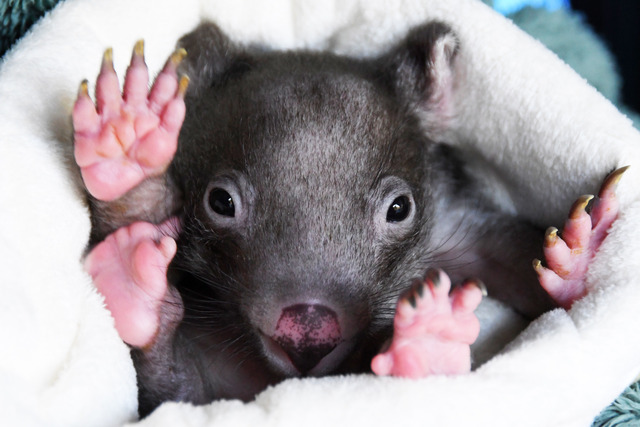By Corey Everitt
As the winter time sees people reserving themselves more indoors, it’s also the time when animals are more out and about for food, and locals are calling for residents to drive with caution to protect native fauna.
On the metropolitan fringe where dense urban living meets regional habitats is some of the most dangerous areas for native animals.
If you regularly commute through the hills in the north or through the swampy plains to the south, fresh roadkill is not an uncommon site.
When an animal is struck it’s the people like Judith Ward from Pakenham Upper’s Greenpatch Wildlife Shelter who are called out to respond, either to euthanise the injured animal or take any surviving young into care.
She started her shelter a few years ago after seeing for herself the number of dead wildlife.
“It’s not something I got into by accident, I was driving down Pakenham Road daily seeing them by the curb and I thought I needed to do something,” she said.
“One day I checked a pouch and there was a joey.”
From there she kept getting called out and she would start her own shelter. She does it from her own home, it is unpaid and she is on call 24/7.
Winter can be one of the worst times, even in a role where she is generally called out ‘daily’.
Roadkill is frequent outside of the urban areas of Cardinia, but even a big kangaroo is sometimes found in the heart of Pakenham.
“Food becomes more scarce, the animals come down closer to the side of the road in winter and just move around more,” she said.
“Which is when we see higher numbers of roadkill.
“It’s more and more where we will dart kangaroos and transport them to another location, they are found in the weirdest place because they are being pushed out by urban development.”
Scientific Officer at Western Port Biosphere, Stephen Brend also sees this level of roadkill across the bay.
“It’s really bad, I just drove down to Phillip Island, along the road there were at least two wombats, a kangaroo and wallaby,” he said.
“The biggest problem is habitat destruction, putting the population under pressure.”
Working in the field he knows all too well the slow but devastating cost this is having on wild and human life.
Emphasised in winter is the many Australian fauna which are nocturnal and/or crepuscular (most active at dawn and dusk).
With the days ending at peak hours, it creates an even higher chance of collision.
Not only threatening animals, but the driver. The introduced Sambar Deer which is found throughout Easter Victoria can reach a weight of 300 kg.
“Our koala numbers are declining year on year and road kill isn’t helping,” he said.
“It’s your nocturnal ones that cop it because cars travel fast at night and can’t see it.
“It impacts people as well, the cost of repairs or the psychological impact of injury”
There are many measures being tested such as paths over or under roads. Mornington Peninsula is testing a fencing system.
These measures can include warnings, either emitting a frequency that will keep wildlife from the road or signals to drivers that trigger when an animal is detected.
Brend supports these measures, but says they shouldn’t be considered a complete solution.
“Everything helps, but the single biggest factor is driver awareness and motivation,” he said.
“If more drivers think about the potential of wildlife collisions, they will drive more safely.”
Ward relays the same message, to respect that people share the same space with wildlife.
“My message is always slow down, be aware we are in the area with them, even just in Pakenham,” she said.
If you find a deceased animal you should contact Cardinia Shire Council or VicRoads.
“Council encourages anyone who comes across a deceased animal on the road or roadside to contact them (or VicRoads for roads managed by the State) to reduce road hazards and prevent other animals from being hit,” Cardinia Shire Council’s Manager Operations, Ana Caicedo said.
“Reports of injured animals can be made to Wildlife Victoria. Trained volunteers are readily available to ensure best possible outcomes for the animal and the community.
“Wildlife Victoria can also provide advice on performing a ‘pouch check’ on a deceased female marsupial such as a wombat, possum or kangaroo.
“Often, as babies are well-cushioned in the pouch, they can survive an incident, so a pouch-check can dramatically reduce suffering of wildlife.”
You can find more information at www.wildlifevictoria.org.au.








